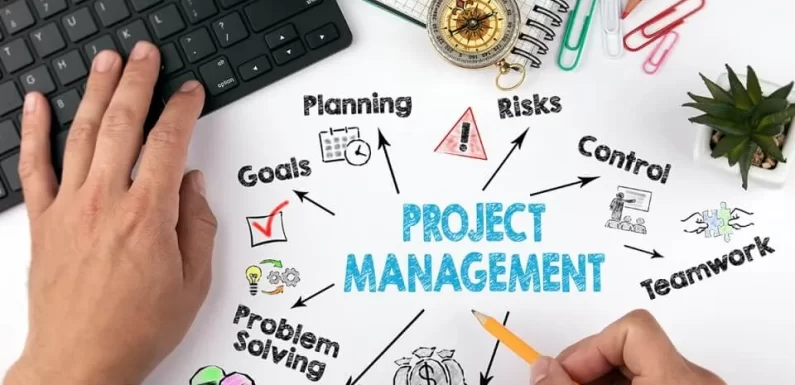
Project management involves leading a team in order to meet a deliverable deadline within budget.
Projects come in all forms, from improving business processes to expanding sales into a new market. No matter the kind of project you undertake, however, certain principles should always be observed to make sure it hits its goals while staying on track.
Organize your team
Organization is key for any project. Doing so allows your team to complete tasks on time, adhere to budget and communicate efficiently among themselves.
Create your team by selecting which departments will collaborate and who will lead them. Make sure each division has an assigned task that it must fulfill, with clear guidelines defining these responsibilities.
Assigning each team member specific tasks is vital for effective delegation and producing quality results.
Prioritize tasks you assign and ensure they are completed in order of importance to avoid expending time, energy and resources on projects that provide little real benefit to your team or organization.
Organize your tasks
Maintaining organized projects is one of the key tasks a project manager must undertake in order to stay on schedule and save both time and money. Keeping projects well organized not only keeps you on task, but it can save both.
Tasks should be organized so that every team member is aware of what their responsibilities are and when. Without such clarity, teams may struggle to stay on schedule.
Tasks can be organized in many different ways, with the most popular way being creating a list of tasks and their due dates.
Organize your schedule
Planning any project requires having an organized schedule in place. This will help keep things on track and avoid delays or bottlenecks that might otherwise hinder progress.
One way of accomplishing this goal is through the use of a work breakdown structure (WBS). A WBS acts like a network diagram and shows which tasks need to be accomplished to achieve your desired goal.
An important step in any project management plan should be identifying task dependencies – these are activities which rely upon other tasks being completed before beginning or concluding their own tasks.
Once your dependencies have been identified, using a critical path method will allow you to identify which tasks are essential to the success of your project. This allows you to prioritize them if time or budget constraints become an issue and decide which can be put on the backburner if time or budget restrictions become an issue.
Organize your budget
Budgets are an integral component of project plans. They help prioritize tasks, track expenses and allocate resources effectively while giving an accurate depiction of your progress so you can quickly adapt to any changes.
Create a project budget can be time consuming when using paper and Excel to track numbers. To streamline this process, consider using Evernote as an efficient way of keeping budget tracking notes and scanning receipts for easy access later.
A strong budget must include fixed and variable costs, budgetary milestones, project management tools and timelines – one such example would be using resource leveling features of project management software to optimize team workload and ensure resources are being allocated at an appropriate rate for various projects at any one time.
Organize your communication
Communication is of utmost importance in project management; without it, teams cannot perform at their optimal performance.
Organise your communication to ensure everyone in your team receives the information they need at an optimal time and in an organized fashion. Make sure all team members understand why a certain type of message was sent their way and who it will be shared with.
Your project communication plan must also detail who will deliver updates and when. In general, this responsibility falls to the project manager; if anyone else is responsible for providing updates they must be named within your plan.












